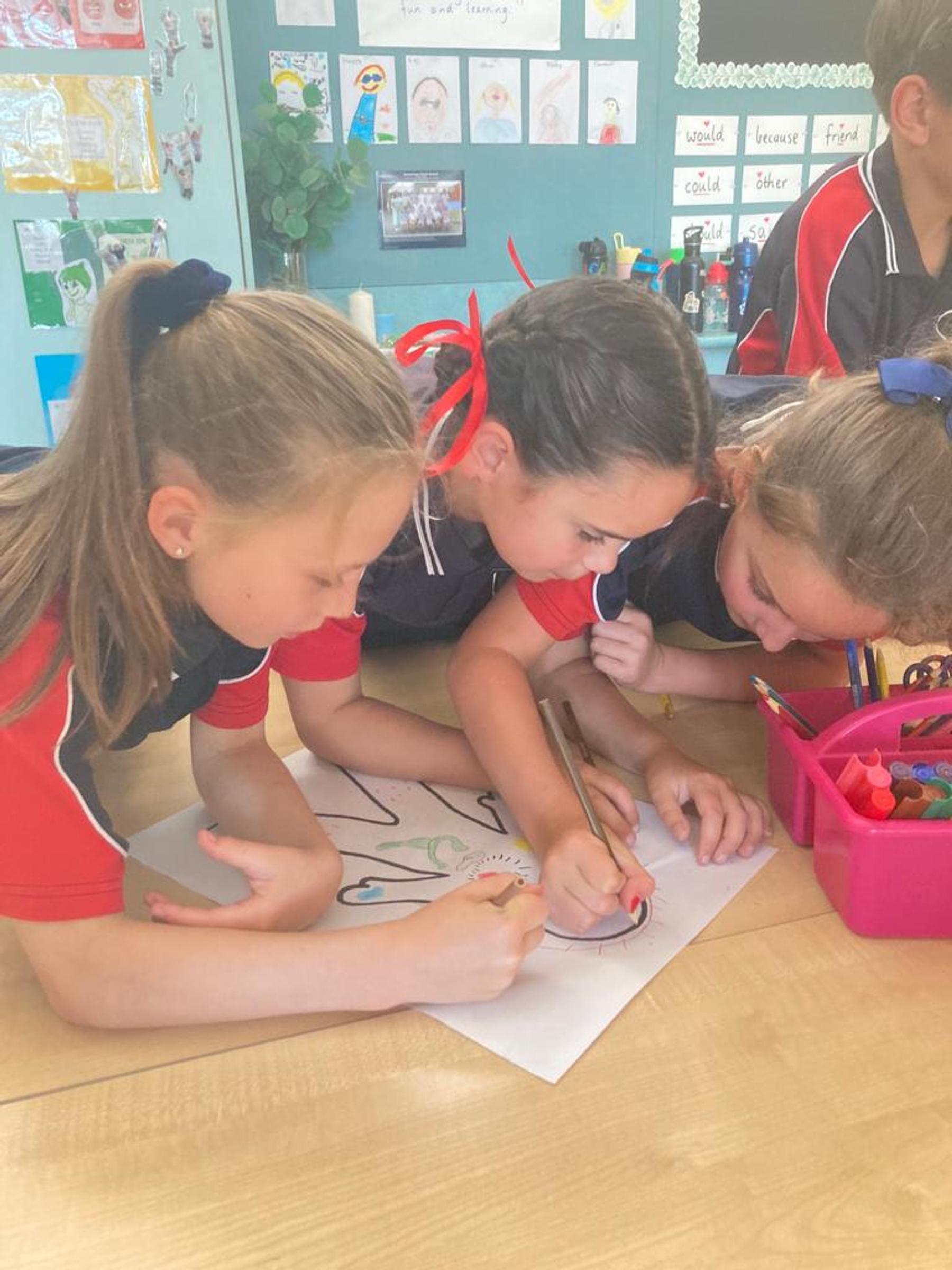Wellbeing
Respectful Relationships and Berry Street Program

Wellbeing
Respectful Relationships and Berry Street Program
On Monday, the 26th of February, our school had the privilege of hosting Kim Carter, the new head of Respectful Relationships, Kim has taken over the role from Paul Zappa who has moved into a new role in the western suburbs. Kim's visit was aimed at gaining insights and ideas to share with other schools, promoting best practices in the crucial realm of the wellbeing curriculum where Sacred Heart is known as 'Lighthouse School' for other schools to loom up too. We spend incredible amount of time a focus on fostering healthy relationships and social skills among students through our Berry Street approach and explicit teaching in our Respectful Relationships program. One noteworthy aspect that caught her attention was our concerted effort to kickstart the week with a whole school approach every Monday afternoon. Kim was blown our teachers ability to connect with the students at their level with every one of them down on their level. This deliberate, whole-school approach sets a positive tone for the week ahead, emphasising the importance of respect, empathy, and positive communication. Kim expressed enthusiasm about incorporating this practice into the broader conversation of best practices within the Respectful Relationships curriculum.
Following the visit, Kim Carter praised our schools commitment to creating environment for fostering positive relationships among students. She emphasised the significance of implementing a whole-school approach as a foundation for building a respectful and supportive community. Kim was eager to share our Monday rituals with other schools, believing that our practices could serve as a model for enhancing the effectiveness of the Respectful Relationships curriculum on a broader scale. The collaborative exchange during her visit not only strengthened our ties with the Respectful Relationships initiative but also highlighted the importance of sharing successful strategies across educational communities for the collective betterment of students' wellbeing and the more schools that can follow this fantastic model the safer the world is that our community will live in.
What Is Jealousy?
Jealousy and envy are normal human emotions. And though the terms are often used interchangeably, they are not the same thing. Envy involves two people while jealousy involves a third person. With envy you feel that you are lacking something that someone else has, and you want that thing. It could be a skill, like running fast; a characteristic, like height; or a possession, such as a toy. With jealousy you feel a kind of threat that you could lose something or someone to another person. Your child might fear that their best friend likes another child better than them, and fear being replaced. Jealousy also often emerges in family situations like the arrival of a new baby, an older sibling getting attention for achievements, or a parent dating following a divorce. In each case a young child can fear losing time, attention, and love.
Signs of Jealousy When a child is feeling jealousy, it may not always be obvious. It can sometimes be hidden in a child’s behaviour.
For example, your child might:
• complain of “tummy aches” or other physical symptoms,
• feel helpless and easily give up on things when normally they would not,
• withdraw from a friendship, become less available to a friend, or be less supportive of a friend, particularly if that friend has experienced something positive,
• start to be quite critical of a friend or even talk about that friend in ugly ways to other children,
• exaggerate happiness about a friendship or become very cautious, warning their friend to “be careful” of their new friend
More obvious indicators of jealousy include:
• overt anger and aggression expressed toward a friend or the “new” friend,
• bullying, teasing, or being mean to the target of jealousy,
• revenge-seeking or sabotaging behaviour (e.g., telling lies about others to bring them down or about oneself just to be liked best),
• clingy, possessive, and demanding overtures toward the best friend so as to not let that child wander off to other friends.
What You Can Do to Help Here are some ways you can help your child learn to cope with their feelings of jealousy.
Make time to talk
Listen to your child talk about their fears without taking over the conversation or rushing in to solve the problem.
Show empathy
Show that you understand your child’s feelings. For example, you can say something like, “I see why you feel upset about not being included in Susan’s party. She’s new to your class and is spending a lot of time with your friend.”
Model compassion
If your child is on the receiving end of jealous feelings, check in with them if they are in any way contributing to the friend’s jealousy. Some children are in a hurry to show off their own successes and don’t realize that this behavior could trigger jealousy in someone else. Consider with your child whether their friend might be having a hard time or is in a tough spot. Acknowledge that this friend must be really hurting to have said ugly words. This show of empathy is very hard to do!
Make room for many different friendships
Host inclusive events and activities with several friends together but also make time for best friends to continue to have their time together and strengthen these ties.
Encourage a positive self-image
What are your child’s positive skills, abilities, and characteristics? Periodically take stock of these with your child. Remind them how they contribute to friendships in beneficial ways and what they do that makes their friendships successful. Help them to remember to be proud of these successful friendships!
Simon Brown - Wellbeing Leader